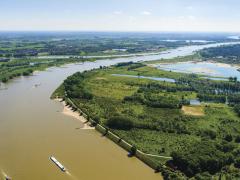Strengths, Weaknesses, Opportunities and Threats: A SWOT analysis of the ecosystem services framework
The ecosystem services concept is a cornerstone of contemporary sustainability thought. Challenges with this concept and its applications are well documented, but have not been systematically assessed alongside strengths and weaknesses. Such an assessment could improve embedding of the concept into environmental decisions and management.
Conducting a SWOT analysis
The Young Ecosystem Services Specialists (YESS) completed a Strengths–Weaknesses–Opportunities–Threats (SWOT) analysis of ecosystem services through YESS member surveys. Strengths include the approach being interdisciplinary, and a useful communication tool. Weaknesses include an incomplete scientific basis, frameworks being inconsistently applied, and accounting for nature's intrinsic value. Opportunities include alignment with existing policies and established methodologies, and increasing environmental awareness. Threats include resistance to change, and difficulty with interdisciplinary collaboration.
Consideration of SWOT themes suggested five strategic areas for developing and implementing ecosystem services.
Future of ecosystem services concept
The concept could improve decision-making related to natural resource use, and interpretation of the complexities of human-nature interactions. It is contradictory – valued as a simple means of communicating the importance of conservation, whilst also considered an oversimplification characterised by ambiguous language. Nonetheless, given sufficient funding and political will, the ecosystem services framework could facilitate interdisciplinary research, ensuring decision-making that supports sustainable development.
Authors
Specifications
- Publication title
- Strengths, Weaknesses, Opportunities and Threats: A SWOT analysis of the ecosystem services framework
- Publication date
- 22 December 2015
- Publication type
- Publication
- Magazine
- Ecosystem Services
- Product number
- 2345




